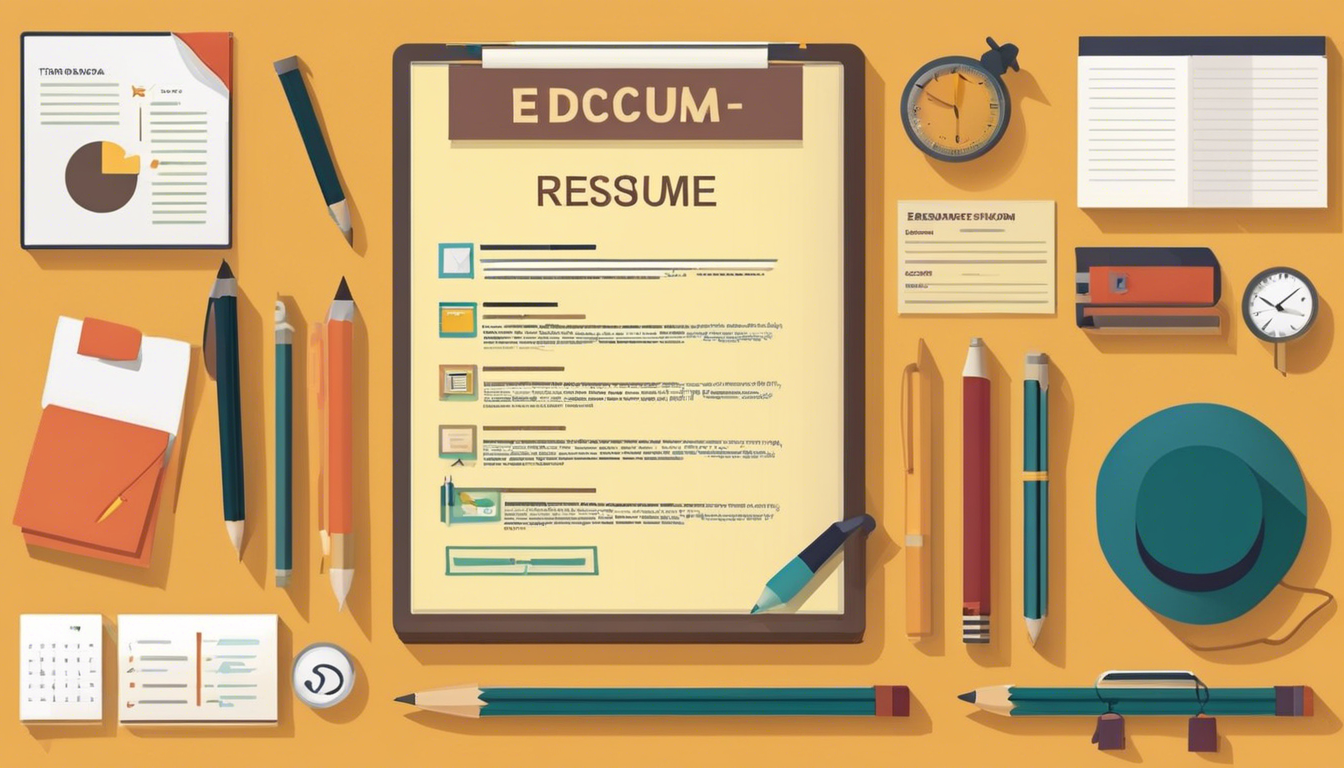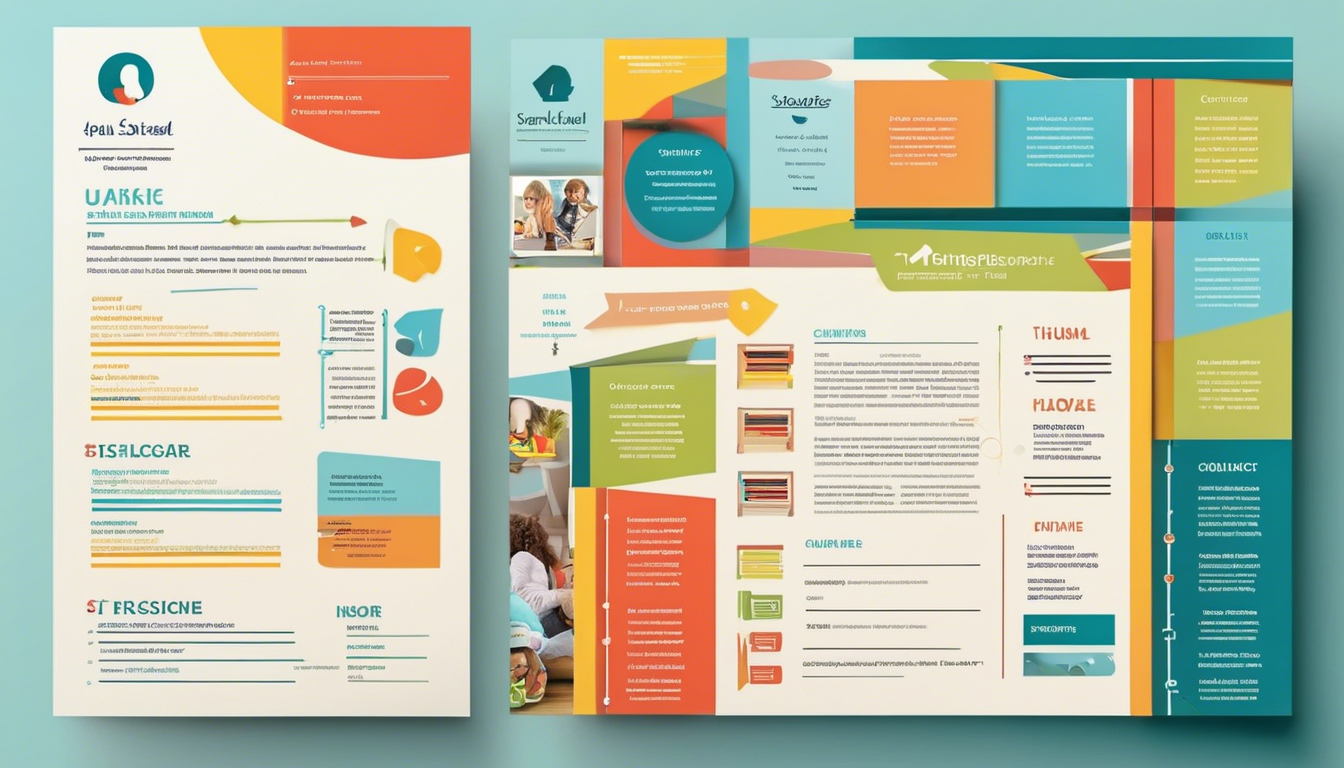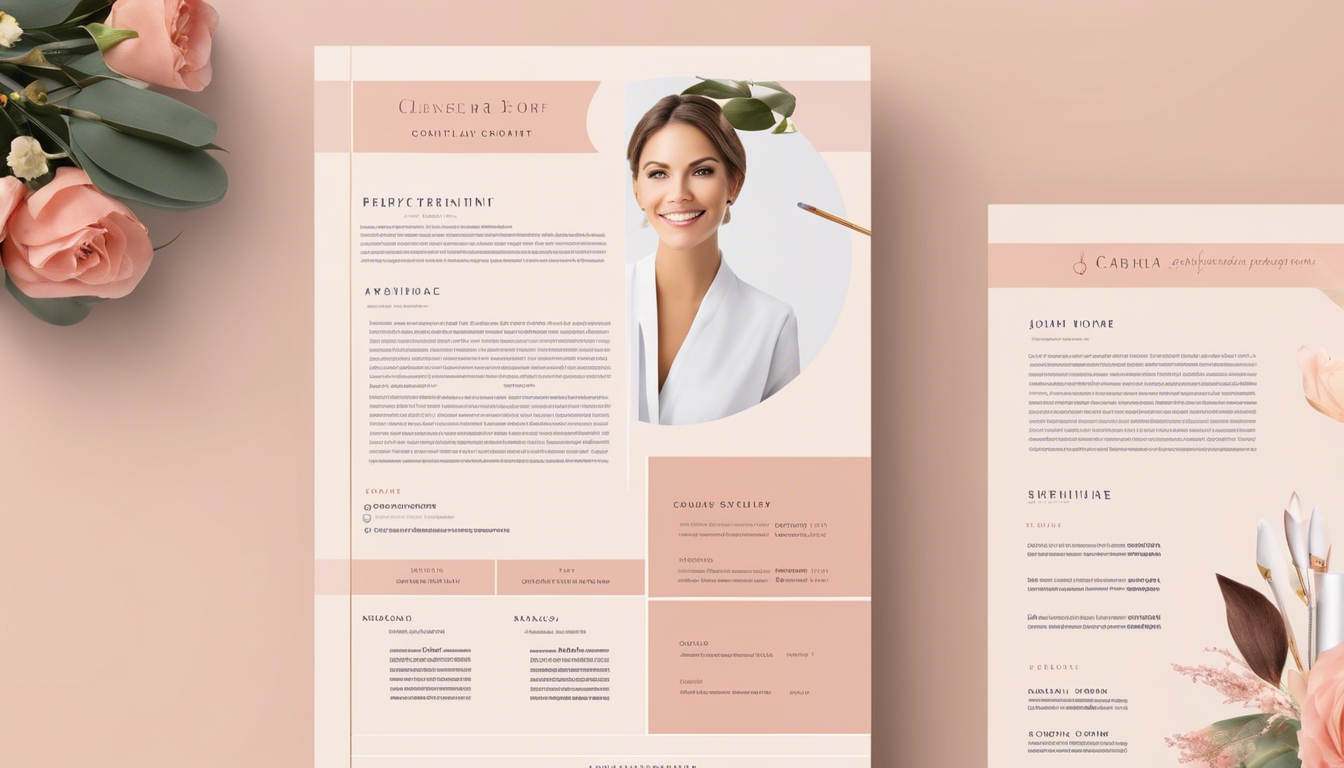In today's competitive job market, crafting a standout resume is crucial for landing your dream job. While your professional experience and skills are undoubtedly the cornerstone of your resume, including your personal interests can add a unique dimension to your application. This article will explore the importance of incorporating interests on your resume and provide guidance on how to do so effectively.
Resume Building Series:







Understanding the Importance of Including Interests on Your Resume
When crafting a resume, job seekers often focus solely on their professional qualifications and work experience. However, including a section dedicated to personal interests can be a powerful tool to set yourself apart from other candidates. Your interests provide insight into your personality, values, and potential cultural fit within an organization. They can also serve as conversation starters during interviews, helping to build rapport with potential employers.
When to Include Interests on Your Resume
Deciding whether to include interests on your resume requires careful consideration. While it can be beneficial in many cases, it's not always necessary or appropriate for every job application.
Evaluating Relevance to Job Applications
Before adding interests to your resume, assess their relevance to the position you're applying for. If your interests directly relate to the job or industry, they can demonstrate your passion and commitment to the field. For example, if you're applying for a position in environmental science, mentioning your involvement in local conservation efforts could be highly relevant.
Considering Company Culture and Values
Research the company's culture and values to determine if including interests aligns with their ethos. Many modern companies value well-rounded individuals and may appreciate seeing a candidate's personal side. If the company emphasizes work-life balance or community involvement, showcasing relevant interests can make you a more attractive candidate.
Types of Interests to Consider
When selecting interests to include on your resume, consider a range of categories that can showcase different aspects of your personality and skills.
Professional Interests
Professional interests directly related to your career field can demonstrate your commitment to ongoing learning and development. These might include:
- Industry-specific conferences or workshops you've attended
- Professional associations you're a member of
- Relevant podcasts or blogs you follow regularly
Personal Hobbies
Personal hobbies can reveal valuable soft skills and personality traits. Some examples include:
- Creative pursuits like writing, painting, or photography
- Physical activities such as hiking, yoga, or team sports
- Intellectual hobbies like chess, puzzles, or book clubs
Community Involvement and Volunteer Work
Highlighting your community involvement and volunteer work can showcase your values and leadership skills. Consider including:
- Volunteer positions at local organizations
- Participation in charity events or fundraisers
- Leadership roles in community groups or clubs
How to Choose the Right Interests
Selecting the most appropriate interests to include on your resume requires strategic thinking and alignment with your career goals.
Aligning Interests with Job Requirements
Review the job description carefully and identify any interests that align with the required skills or qualities. For instance, if the job requires strong teamwork skills, mentioning your participation in team sports could be beneficial.
Showcasing Soft Skills Through Interests
Use your interests as a way to highlight important soft skills that employers value. For example:
- Leadership: Mentioning your role as a team captain in a recreational sports league
- Creativity: Describing your passion for DIY home improvement projects
- Time management: Discussing how you balance multiple hobbies with your professional life

Best Practices for Listing Interests
Once you've decided to include interests on your resume, it's important to present them in a way that enhances rather than detracts from your overall application.
Creating a Dedicated Section for Interests
Allocate a specific section of your resume for interests, typically near the end of the document. This keeps your resume organized and allows recruiters to easily find this information if they're interested.
How to Format Interests on Your Resume
When formatting your interests:
- Use bullet points for clarity and easy reading
- Group similar interests together
- Consider using subheadings if you have multiple categories of interests
Keeping It Brief and Relevant
While it's tempting to list all your interests, be selective and concise. Choose 3-5 interests that are most relevant to the job or showcase your best qualities. Avoid lengthy descriptions; a simple list is often sufficient.
Examples of Interests to Include
Hobbies and Activities
- Marathon running: Demonstrates discipline, goal-setting, and perseverance
- Blogging: Shows communication skills and potentially subject matter expertise
- Learning new languages: Indicates cultural awareness and cognitive flexibility
Volunteer Experiences
- Habitat for Humanity volunteer: Showcases teamwork and community involvement
- Animal shelter dog walker: Demonstrates compassion and reliability
- Literacy tutor: Highlights teaching skills and patience
Skills Demonstrated Through Interests
- Amateur photography: Illustrates attention to detail and creativity
- Organizing community events: Shows leadership and project management skills
- Participating in improv comedy: Indicates quick thinking and adaptability
Crafting Compelling Interests for Your Resume with TalenCat CV Maker
When it comes to writing a resume that stands out, including a well-crafted interests section can make a significant difference. The AI resume builder TalenCat CV Maker offers an intuitive platform to help you create a resume that effectively showcases your interests and personality. Here's a step-by-step guide on how to use TalenCat CV Maker to write compelling resume interests:
Step 1: Log in to TalenCat CV Maker and create a new resume by clicking the "+ Create Resume" button in the top right corner.

Step 2: Name your resume and choose whether to start from scratch or use a pre-existing template.

Step 3: Once in the resume editor, navigate to the "Interests" section. Here, you can add and customize your interests to make them stand out.

When writing your interests, consider the following tips:
- Be specific and genuine about your interests.
- Align your interests with the job or industry you're applying to, if possible.
- Use action verbs to describe your involvement in these interests.
- Keep the list concise, focusing on 3-5 key interests.
TalenCat CV Maker's AI-powered suggestions can help you phrase your interests in a professional and engaging manner. Simply input your interests, and the AI will provide recommendations on how to present them effectively.
Once you've completed your resume, including the interests section, you can easily export it as a PDF or enable the online sharing feature for convenient distribution to potential employers.
By utilizing TalenCat CV Maker's features, you can create a resume that not only highlights your professional qualifications but also showcases your personality through a well-crafted interests section, giving you an edge in your job search.## Examples of Interests to Include
Common Mistakes to Avoid
Overloading Your Resume with Irrelevant Interests
Avoid listing too many interests or including ones that have no bearing on your professional life. Focus on quality over quantity, selecting interests that add value to your application.
Including Controversial or Polarizing Interests
Steer clear of mentioning interests that could be seen as controversial or divisive. This includes political affiliations, religious activities (unless directly relevant to the job), or any hobbies that might be perceived negatively in a professional context.
Failing to Tailor Interests for Specific Applications
Just as you tailor your work experience and skills to each job application, consider adjusting your listed interests to align with the specific role or company culture you're targeting.
Tips for Discussing Interests in an Interview
Preparing to Elaborate on Listed Interests
Be ready to discuss your interests in more detail. Prepare anecdotes or examples that illustrate how your interests have contributed to your personal growth or professional development.
Using Interests to Build Rapport with Interviewers
Look for opportunities to connect with interviewers over shared interests. This can help create a more relaxed atmosphere and memorable interaction.
Conclusion
Recap of Key Points on Listing Interests
Including interests on your resume can be a valuable way to differentiate yourself from other candidates and provide a more holistic view of who you are as a person. Remember to:
- Choose interests that are relevant to the job or showcase valuable skills
- Keep the list concise and well-formatted
- Avoid controversial topics
- Be prepared to discuss your interests in interviews
Encouragement to Personalize Your Resume
Your resume is more than just a list of qualifications; it's an opportunity to present yourself as a well-rounded individual who can contribute to a company's culture and success. By thoughtfully incorporating your interests, you can create a more engaging and memorable resume that truly represents you as a candidate.
Remember, the goal is to present a professional image while also giving potential employers insight into your personality and potential cultural fit. With careful consideration and strategic inclusion of your interests, you can create a resume that not only highlights your professional qualifications but also showcases the unique individual behind the application.



